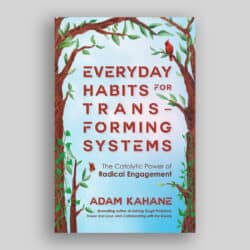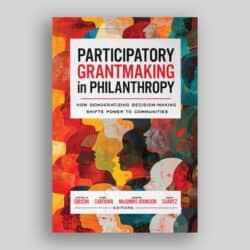By John Paul Dalsimer
Published by Energize Books, 5450 Wissahickon Avenue, Lobby A, Philadelphia, PA 19144, 1989, $20.50 US.
REVIEWED BY JOHN D. GREGORY
Treasurer, Poculi Ludique Societas, Toronto
The love of money is not the root of all evil but the ignorance of money is the root of some evil. It is important for a nonprofit organization to understand money and misunderstanding may be fatal. Understanding must begin with the board of directors, which has the primary responsibility for the ability of the organization to achieve its goals.The secondary, day-to-day responsibility is that of the treasurer. The treasurer ensures that income and expenses are properly controlled, that the records are properly kept, and that information is properly laid before the board so that its responsibility in tum can be properly exercised.
Who is the treasurer? Big organizations may select a professional accountant. In typical charities, the treasurer happens to be a member of the board with an honest manner, or someone who does not choose to decline appointment. But money does not manage itself. Where does the wise but inexperienced treasurer start? What do all those figures mean?
John Paul Dalsimer answers these questions. Dalsimer is a Certified Public Accountant (CPA) in Pennsylvania who understands money and who also understands people who do not. He starts the volunteer at the very beginning and leads him or her through the maze of banks, cheques, ledgers, financial statements and audits, before casting his reader on the doorstep of the professional or on the threshold of “further reading”.
The book is a good one. It is straightfmward and easy to read. Dalsimer begins with the basics: a small organization without much money. He develops principles and practices in this section that carry him on to the second part which deals with larger organizations. On the way he explains the records one needs to keep and how to keep them, what they look like in practice, internal controls on spending and receipts, and accounting for special events. As the reader (and the charity) become more sophisticated, he moves up to fund accounting, cash and accrual accounting, budgeting and public reporting. He fmishes with a chapter on what a professional accountant does and how to save money while getting the most from his or her services.
In all these details, Dalsimer does not overlook the duties of the board. He makes it clear that whatever the treasurer does, and whatever the size of the employed staff which deals with numbers, books and records, the board has to retain control and be accountable to members, to its own members, and to the public for the financial health of the organization. All the treasurer does is keep track and serve up numbers in a way that is useful to the board.
Dalsimer is an American writer for an American audience. He is aware that the basic principles are the same in Canada, and he gives token attention to Canadian authority and practice. The vocabulary is basically American, as for example, the names and contents of financial statements and government reporting requirements. Canadian references are occasional rather than constant However, the principles are indeed universal and Canadian treasurers who are unsure of their mandate, or who want a refresher course or a checklist, will find this book helpful.
Self-Help Accounting will take the beginner to the stage where he or she can begin to profit from more complex texts and keep him or her out of trouble in the meantime. I found it a useful reminder and I will refer to it more than once in the course of the budgeting, operating and accounting functions I perform for my own charitable organization.
The Not-for-Profit Incorporator’s Handbook
By the Companies Branch of the Ministry of Consumer and Commercial
Relations and the Public Trustee, Ministry of the Attorney General Ontario.
Available in French or English through the Government of Ontario Bookstore,
880 Bay Street, Toronto, M7A JN8, $5.
REVIEWED BY JOHN A MILLER
President, Cultural Support Services Inc., Toronto
Dear Diary:
Sunday. And I’m off to the cottage for a few days. I’ve packed some reading, too: the new John LeCarre novel; Hanson’s Stress for Success; some unpublished notes by Jean-Marc Dalpe, the outstanding francophone writer from Ontario who recently won a Governor General’s Award; the Potluck cookbook; and The Notfor-Profit Incorporator’s Handbook. Something to inspire me, to nourish me, to thrill me, to enlighten me, and to help me sleep-though not necessarily in that order, I trust.
Monday. I’m eating well but sleeping fitfully. Too many questions on my mind. Are all charities not-for-profit organizations? Are all not-for-profit organizations charities? If my club is a charitable organization can we consider the proceeds from our potluck supper a profit? Can one use the term “royal” in an organization’s name without the consent of the Palace? Who is the Public Trustee and would he ever appear in a LeCarre novel?
Tuesday. Let’s face it. Just as I’m beginning to think that I’m not a handbook guy, along comes this manual, written, it says in the Introduction, for me—a layman-with general information on the nature of Ontario not-for-profit organizations, and maybe even with enough detail so we can incorporate a Jean-Marc Dalpe Fan Club without the assistance of a lawyer. Can you believe it, Dear Diary? A way to incorporate our organization that’s as simple as figuring out how to manipulate the clock in my car when we change from daylight saving to standard time!
Wednesday. I’m feeling a bit stressed today. Perhaps it’s all that well-organized information about corporations: their nature, advantages and disadvantages, types, incorporation process, and corporate maintenance. Nicely done. Dr. Hanson says that civil service jobs aren’t as easy as the public thinks; I’m anxious to get the details right for the Public Trustee.
And by the way, I can use the term “royal” so long as it’s a descriptive adjective in the sense of “majestic” or “grand” and no Palace patronage is suggested. But even if we decided to call you-know-who for support for the new Dalpe Fan Club we shouldn’t get in touch with London; it’s to the city on the Rideau and the Secretary of State that we write.
Thursday. Raining today, so I stay inside and return to the bureaucrat’s dream, perfectly presented incorporation papers without the assistance of a solicitor. Not a bad idea, either, since I recall a recent project where the lawyer volunteered the services of his firm to prepare the documents. We all cheered and felt sure that this was like manna from behind the iron gates at Queen and University. The treasurer was ecstatic. Then the solicitor seemed to disappear. We waited for almost a year to get the papers; suffered through a couple of law clerks; finally got the papers. But what we could have done with a manual like this Handbook-or a different lawyer!
Friday. Finished all the text last night since it was too wet to go antiquing in Vermont. Part 2 gave all the permutations and combinations of naming the new creature-bilingual titles, words verboten, languages other than the two official ones, using the names of other provinces in our title.
The next chapter inspired me almost to want to fill out the incorporation documents on the spot, and section 4 listed the practical steps to set up our Fan Club. Chapter5 dealt with Corporate Maintenance-!like that term, Dear Diary—and after that I fell asleep, somewhere between the Preamble to the Statute of Elizabeth I, 1601, and our duty to act gratuitously.
Probably it was just the rain that took my mind away from all this good work by the functionaries on my side at Queen’s Park
Saturday. And the style is easy. Bacon, and the balance of the Trustee’s handiwork: an Appendix with more useful tidbits than I’ve got blueberries in my Potluck French Toast. Good materials such as the addresses of corporation branches of governments in other Canadian jurisdictions, a list of search houses ready to help me secure an appropriate name for the Club, draft resolutions and object clauses and power clauses, sample application forms duly completed, and bibliography in case, I suppose, I want to do more of this sort of exploring next trip to the lake.
But I’ve already got that entertainment prepared. I’m bringing audio items. Does Revenue Canada come on compact disk, Dear Diary?


